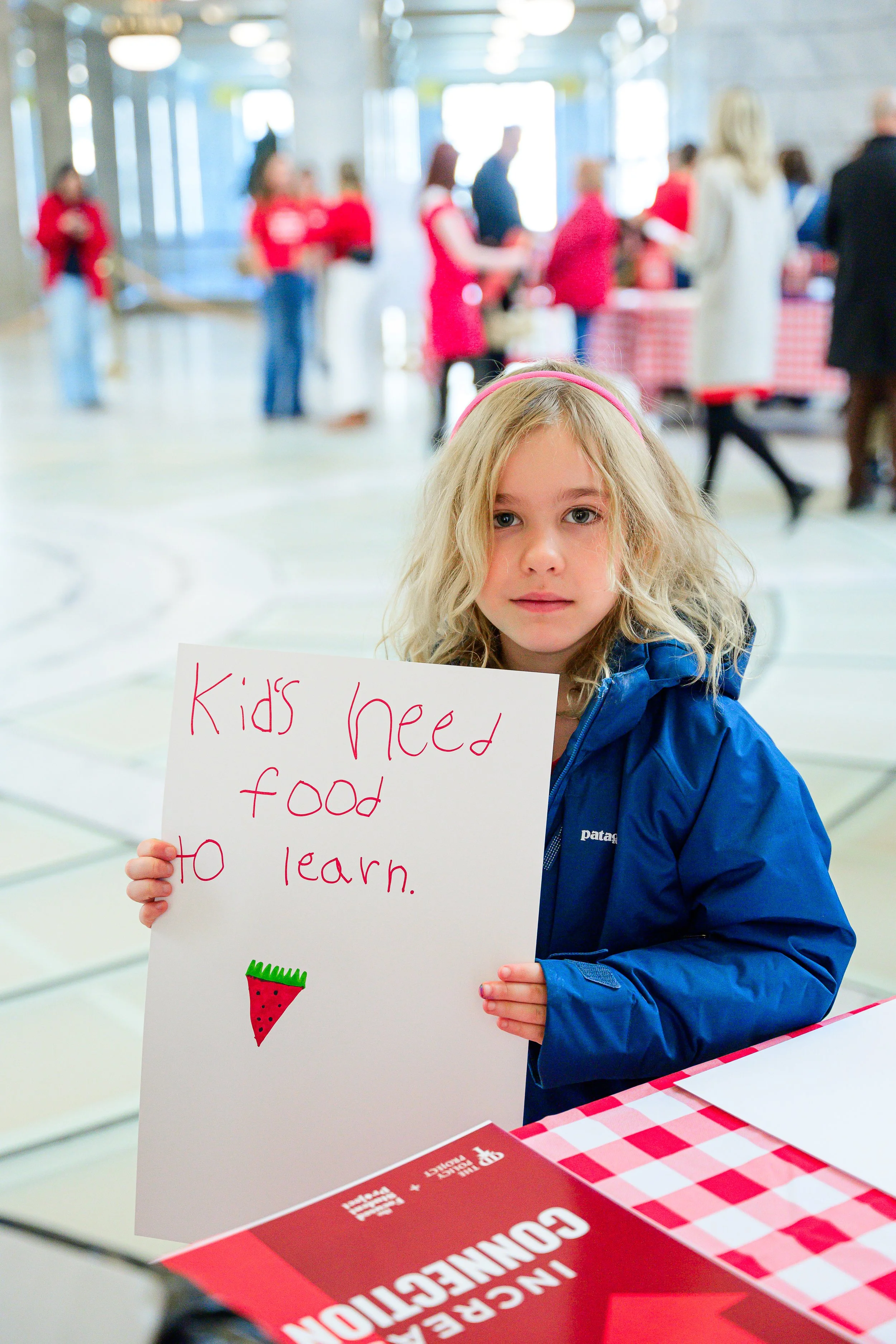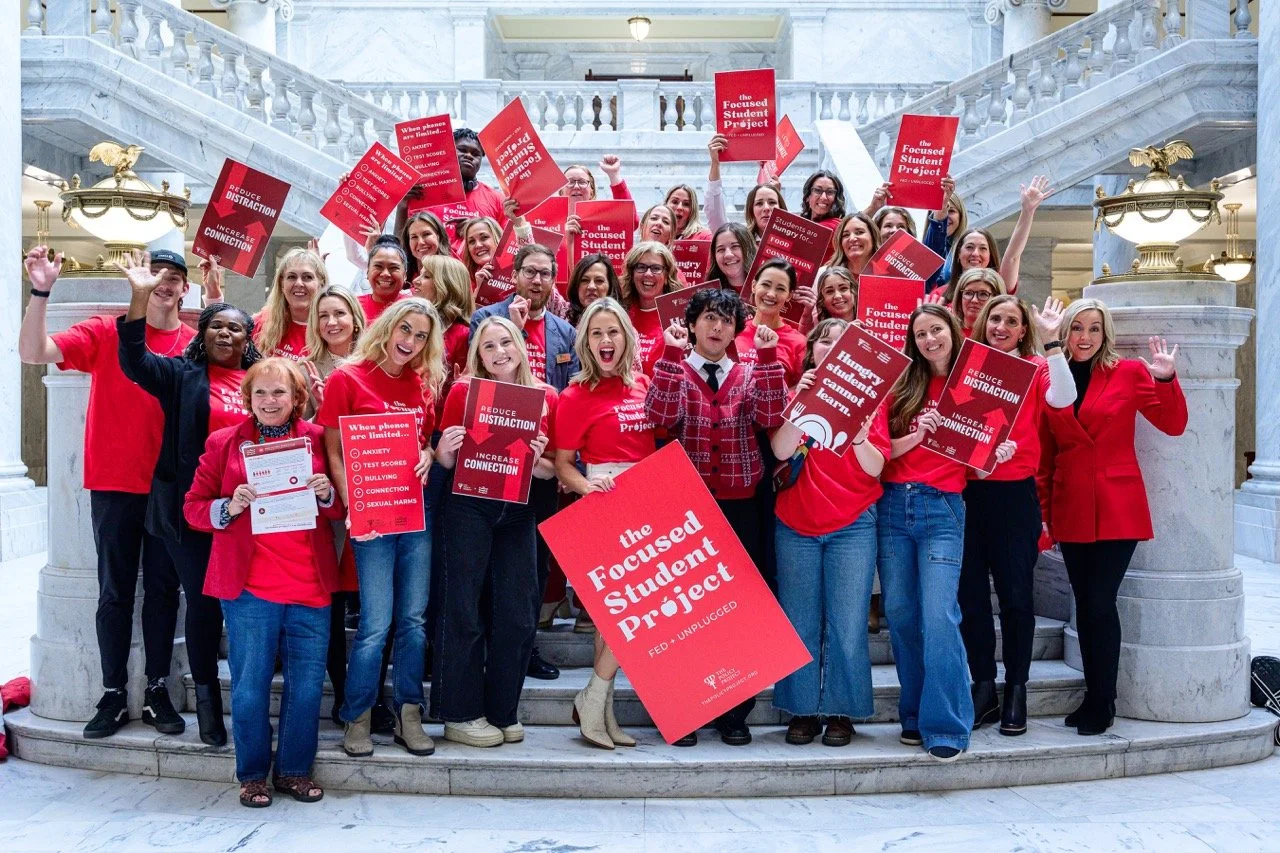Combat Student Hunger
In 2025, The Policy Project created a law that increases access to no-cost school meals for Utah students.
The Problem
In Utah, one in six children experiences hunger. For these kids, learning doesn’t come first—it comes second to food. Hunger impacts students’ academic performance, mental health, behavior, and long-term economic success.
In Beaver, a young girl resorted to eating dog food because she had nothing else at home.
In West Valley, a student living out of her family car received foods like mac and cheese from the food bank but had no way to cook them.
In Logan, a student-athlete told us he often scavenged pizza from a dumpster.
Between 2021 and 2023, the cost of a reasonably priced meal in Utah increased by 27%.
The Solution
During the 2025 Utah Legislative Session, House Bill 100: Food Security Amendments was signed into law and took effect July 1, 2025.
This law makes important changes to expand access to free school meals for families across the state. Most significantly, it eliminates the “reduced-price” lunch category so that students who previously qualified for reduced-price meals will now receive lunch at no cost.
The Impact
House Bill 100 provided 40,000 more students with access to no-cost school lunch.
Additional postive outcomes include:
No-cost school meals can reduce grocery bills for households with children as much as 19%
One study showed that providing students with meals led to a 13% to 16% improvement on an academic task.
Students reported that expanding eligibility for no-cost meals reduced the stigma associated with them.
Schools that provide no-cost meals have observed fewer suspensions and disciplinary actions.
Real Stories. Real Impact.
Ongoing Support
The Policy Project continues to support the successful implementation of this law by:
Crafting messaging to help families understand the new policy and how to access funding.
Exploring ways to increase access to school lunch, especially for economically disadvantaged areas.
Address stigma for students experiencing food insecurity and advocate for reduction of food waste.
Donate $10
Pay off a student’s school meal debt. Help kids focus on learning—not hunger.






